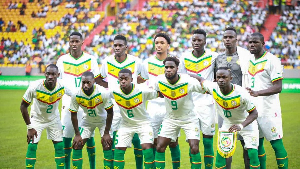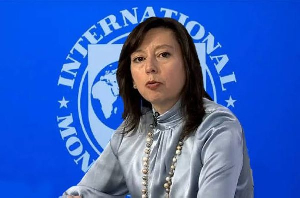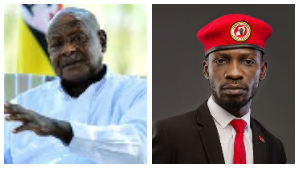The global battle to combat poverty was much realized when on September, 2000, United Nations Millennium Summit, 189 Heads of State and Government unanimously adopted the Millennium Declaration of which Ghana was involved. Born out of this declaration are eight time-bond measurable goal that have committed countries, rich and poor, into a global compact to be achieved by 2015. The 8 Millennium Goals, its 18 targets and 48 indicators are unique, clear and precise step to eradicating poverty in, especially, developing countries.
In relation to this compact, Ghana adopted the Ghana Poverty Reduction Strategy (GPRSI) (2003-2005) and Growth and Poverty Reduction Strategy (GPRS II) (2006-2009). Under the GPRS I, the main thrust of the government¢s policy initiatives was aimed at maintaining macroeconomic stability. The first programmes were formulated against the backdrop of a general economic crisis in which virtually all of Ghana's key
macroeconomic indicators were spiraling out of control. The practical lessons drawn from the implementation of the GPRS I served as a guide to the preparation and formulation of GPRS II with its three pillars; Human Resource Development, Private Sector Competitiveness and Good Governance and Civic Responsibility. This document concentrated on the growth of the economy to achieving a middle income status by 2015.
This has been the policy history of Ghana for the past ten years in its attempt to compete with other countries in the quest for human development and towards alleviating poverty
and widening options for people in terms of education, health, employment income, to mention but a few.
What then is the situation now? Are we improving as a country or heading into disaster?
The Improvement
There is no doubt that the economy of Ghana has made a significant improvement in growth for the past few years. It is in this regard, that the Millennium Challenge Corporation (MCC) approved the 'Compact' of 547 million dollars of the Millennium Challenge Account (MCA) on July 12, 2006 to focus on rural agriculture, transportation and community development initiatives. The most central of it all is the fact that, Worldwide Governance Indicators (WGI) (the updated version) compiled by World Bank
researchers on June 24, 2008 classified Ghana as making progress in Voice and
Accountability together with Indonesia, Liberia and Peru.
It is also relevant to reveal that Ghana has made improvements in achieving the Millennium Development Goals (MDGs) which it is committed to. According to the MDG Monitor, an initiative of the United Nations used for tracking the achievement of the Millennium Development Goals, Ghana has made good progress in the achievement of the goals since 2000. It has sustained a period of economic stability, with income poverty levels declining from 39.5 per cent in 1999 to around 28.5 per cent in 2006 (Last updated 1 November, 2007). The steady decline of poverty nationwide and increases in access to basic social services was attributed to the efforts made under GPRS I and GPRS II. The MDG Monitor made a statement that National development targets are even more ambitious than the MDGs which reveals the fact that Ghana as a country has a lot of potentials and capabilities to overhaul the state of its economy to be like the economy of some of the Asian Tigers (especially Japan, South Korea and Malaysia).
This is a good thing for Ghana and a step towards development which all Ghanaians hope for in the phase of taunting poverty that has denied majority of Ghanaians of sound standard of living. The tireless efforts of social and economic government and non-governmental organizations need, therefore, to be recommended in this respect for their good work done.
This is the most ¡quality issue¢ that Ghana needs in its quest for growth and development and this is the reason behind this article as a highlight to the status of the economy in the achievement of the MDGs. This highlight also the importance of our various policy documents by different government including the Ghana Vision 2020 and the GPRS I and GPRS II which considered as its priority the alleviation poverty. It is for this reason that all Ghanaians are obliged to develop the spirit of hard work not for their self- interested ambitions but for the sake of Ghana's growth.
The Task Ahead
According to the MDG Monitor, although there has been steady progress in some areas, especially poverty reduction, and education towards achieving the MDGs in Ghana by 2015, challenges in the areas of child health/child mortality, maternal mortality, gender equality and worsening income inequalities need to be given special attention. But the recent improvements in health care including the National Health Insurance Scheme and the Free Maternal Health Care clear all doubt that the achievement of the goals is possible in Ghana. The needed prudent policies should be directed at bridging the income gap between the rich and the poor in the quest for sound human development. The best policies would be formulating more redistributive policies which shift resources from the advantaged (rich) to the disadvantaged (poor). The Free Compulsory Universal Basic Education (FCUBE) which is a distributive and a redistributive policy needs to be ameliorated to cover majority of the poor and the less privileged.
Ghana is more than capable and 'Yes We Can' only when we change our mind-set that causes public and private officials to embezzle funds and rob the poor of their money for
their selfish gains which has rendered fruitless the strategy of Public Sector Reform Programme in June 2004 titled 'Towards a New Public Service for Ghana' by the past government meant to improve the efficiency of all government machineries. For this and other pertinent reasons, let your sense of patriotism be seen in all fields of endeavours and uphold the name of Ghana to the international communities. The change towards development in Ghana is dependent upon all Ghanaians and not the government alone. God bless Ghana.
By: Stephen Yeboah (stephenyeboah110@yahoo.com), Department of Planning
Kwame Nkrumah University of Science and Technology, Kumasi
Opinions of Tuesday, 17 February 2009
Columnist: Yeboah, Stephen














